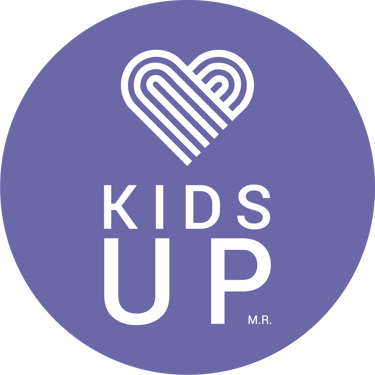Family Wellness Program
The Family Wellbeing Program is a model based on four components that accompanies Parents and Caregivers during different stages of their children's development, understanding that both support needs and family dynamics change over time. In this way, a long-term program is implemented that specialized Kids UP teams accompany in the environment of a company, who is the principal, and which, together with the set of benefits associated with the families of participating collaborators, receives an implementation monitoring report. and results associated with the program's achievement indicators.
This method is based on the central idea that a positive and functional family environment has a significant impact on the mental health, well-being and work performance of individuals. Clark and Oswald's (2002) research supports this premise by demonstrating that a satisfying family environment is associated with greater job satisfaction and productivity at work. Furthermore, Frone's (2003) work indicates that family problems can generate job stress and increase the likelihood of job turnover. Therefore, investing in family well-being not only benefits individuals and their families, but also contributes to job stability and organizational success.
Components of the Family Wellbeing Program:
1. ZERO Handicap: Support for Parents and Caregivers (0-3 years)
- The “Handicap Zero” Program aims to improve the parenting conditions and well-being of families with children under 3 years of age in Chile, through the provision of clinical psychosocial and psychological diagnoses, as well as the facilitation of access to social support networks, subsidies and benefits in various government programs. It is based on Bowlby's (1988) attachment theory, which highlights the importance of early emotional relationships in child development.
2. Strong Parents: Positive Parenting (3-14 years)
The focus on positive parenting and parental management, as well as strengthening social-emotional and academic skills in children, is based on decades of rigorous research that has demonstrated its effectiveness in preventing problem behaviors and promoting the healthy development of children. children and adolescents. The main objective of the "Strong Parents" program is to promote a healthy family and educational environment that contributes to the comprehensive development of children and adolescents. The combination of evidence-based interventions and the academy of academic and socio-emotional reinforcement will achieve tangible results in the prevention of problematic behaviors and the promotion of family well-being. Constant monitoring of achievement indicators will guarantee the effectiveness and quality of the program for the benefit of the families and communities served.
- Based on Bandura's (1986) social learning theory, which emphasizes the role of parental models in the acquisition of socio-emotional skills and prosocial behaviors.
3. Positive Peers (Adolescence)
-The general objective of the "Positive Peers" program is to promote the positive socio-emotional development of adolescents by strengthening their relationships with positive peers and encouraging prosocial behaviors, leadership and autonomy, through participation in structured activities in institutions that promote clear standards of prosocial behavior and behaviors. Based on Lerner's (2006) theory of positive development, which highlights the importance of social relationships in adolescence for the development of prosocial skills and identity formation.
4. Opportunities
-The "Oportunidades" program is based on the Theory of Social Development, which emphasizes the importance of social environments in the comprehensive development of individuals, especially during childhood and adolescence. In addition, it is supported by studies on behavioral sciences and cognitive development, which highlight the importance of providing educational and training opportunities that promote socio-emotional and critical thinking skills. Human capital theory suggests that education is a fundamental resource for human development and social mobility (Becker, 1993).
Research shows that educational scholarships can increase school retention and improve student academic outcomes (Dynarski et al., 2011). Based on Catalano and Hawkins' (1996) social development strategy, which suggests that providing educational opportunities to children and youth is crucial to preventing behavioral problems and promoting positive development.


